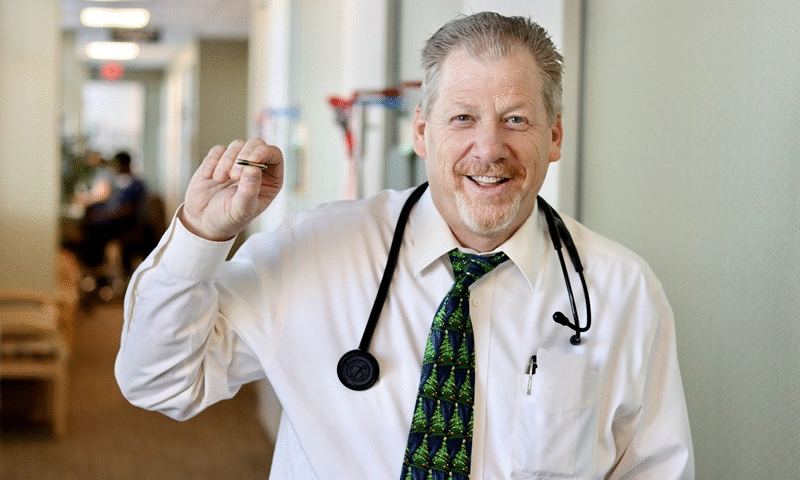
How to Start a Successful Blog and Make Money
September 26, 2025
Cardiology Treatments for High Blood Pressure Patients
September 26, 2025
Heart health is something many people don’t think about until symptoms start to show. Two of the most common warning signs people notice are chest pain and palpitations (the feeling of your heart racing, pounding, or skipping a beat). While these symptoms can sometimes be harmless, they may also point to serious heart conditions that need medical attention. Knowing when to see a cardiologist can make all the difference for your health and peace of mind.
In this guide, we’ll explain what chest pain and palpitations really mean, when they could be dangerous, and why visiting a heart specialist is so important.
Understanding Chest Pain
Chest pain doesn’t always mean a heart attack, but it should never be ignored. The discomfort can range from mild tightness to sharp, stabbing pain. Sometimes it feels like pressure, burning, or squeezing.
Chest pain may be caused by:
- Heart-related issues like coronary artery disease, heart attack, or angina (reduced blood flow to the heart).
- Non-heart causes such as acid reflux, muscle strain, lung infections, or anxiety.
The tricky part is that you can’t always tell the difference on your own. That’s why consulting a doctor—especially a cardiologist—is so important if you experience recurring or unexplained chest pain.
What Are Palpitations?
Palpitations are sensations where you feel your heart beating irregularly. They might feel like:
- A sudden “fluttering” in the chest
- A skipped beat
- A pounding heartbeat
- Rapid racing of the heart
While occasional palpitations may be harmless and linked to stress, caffeine, or dehydration, persistent or severe palpitations may signal arrhythmias (abnormal heart rhythms), thyroid problems, or structural heart conditions.
When to See a Cardiologist for Chest Pain
Here are clear warning signs that your chest pain should be checked by a cardiologist:
- Pain lasts more than a few minutes – If the pain doesn’t go away with rest, it may be heart-related.
- Pain spreads to other areas – Such as the arm, neck, jaw, or back.
- Associated with shortness of breath – Especially if you feel faint, dizzy, or weak.
- Triggered by activity – Chest pain that comes on when exercising or climbing stairs may indicate reduced blood flow to the heart.
- History of heart disease – If you have high blood pressure, diabetes, or family history of heart problems, take chest pain seriously.
If chest pain is sudden and severe, don’t wait—call emergency services immediately. But even milder or recurring pain should be checked by a cardiologist to rule out heart disease.
When to See a Cardiologist for Palpitations
Not all palpitations need urgent care, but there are situations where you should make an appointment with a cardiologist:
- Frequent or daily palpitations that interfere with daily life.
- Palpitations with chest pain, dizziness, or fainting.
- Palpitations during exercise or physical activity.
- History of heart problems or family history of sudden cardiac arrest.
- Irregular heartbeat detected (such as atrial fibrillation).
If your palpitations come with fainting or severe chest pain, treat it as an emergency. Otherwise, a cardiologist can run tests like an ECG, Holter monitor, or echocardiogram to identify the cause.
Why Seeing a Cardiologist Matters
Some people hesitate to visit a specialist, hoping the symptoms will disappear. But chest pain and palpitations can be early warnings of serious heart problems. Early diagnosis allows treatment before complications develop.
A cardiologist can:
- Run specialized tests to pinpoint the cause.
- Identify risk factors for heart disease.
- Recommend lifestyle changes (diet, exercise, stress management).
- Prescribe medications or procedures if needed.
In many cases, people discover that their symptoms are caused by something minor. But the reassurance of knowing for sure is worth the visit.
Tests a Cardiologist Might Recommend
If you see a cardiologist for chest pain or palpitations, they may order:
| Test | Purpose |
|---|---|
| Electrocardiogram (ECG/EKG) | Measures heart’s electrical activity |
| Echocardiogram | Ultrasound of the heart’s structure and function |
| Stress Test | Checks heart performance under exercise |
| Holter Monitor | 24–48 hour portable ECG to detect irregular beats |
| Blood Tests | Checks cholesterol, enzymes, or thyroid function |
These tests help the doctor rule out or confirm heart-related causes.
Lifestyle Changes That Support Heart Health
While seeing a cardiologist is essential for symptoms, you can also take steps at home to support your heart:
- Eat a heart-healthy diet rich in fruits, vegetables, whole grains, and lean proteins.
- Limit caffeine and alcohol, which can trigger palpitations.
- Exercise regularly with safe, moderate activities like walking, swimming, or yoga.
- Quit smoking and avoid secondhand smoke.
- Manage stress through meditation, breathing exercises, or counseling.
- Get regular check-ups to monitor blood pressure, cholesterol, and blood sugar.
These habits reduce the chances of heart disease and may ease symptoms like palpitations.
When It’s an Emergency
While regular appointments are important, sometimes chest pain or palpitations require immediate care. Call emergency services right away if you experience:
- Severe, crushing chest pain
- Pain spreading to arms, neck, or jaw
- Difficulty breathing or sudden dizziness
- Palpitations with fainting or near-fainting
It’s always better to be cautious with heart symptoms.
Conclusion
Chest pain and palpitations can be alarming, but they should never be ignored. While not all causes are dangerous, they may signal serious heart conditions. If symptoms are frequent, severe, or linked with other health issues, it’s time to see a cardiologist.
Your heart is one of the most vital organs in your body. By paying attention to warning signs, seeking timely medical care, and making lifestyle changes, you can protect your heart health for years to come.
FAQs About Seeing a Cardiologist for Chest Pain or Palpitations
1. Are palpitations always related to heart disease?
No, palpitations can be caused by stress, caffeine, or anxiety. However, frequent or severe palpitations may point to heart rhythm problems and should be checked.
2. Can chest pain be caused by anxiety?
Yes, anxiety and panic attacks can cause chest pain. But because chest pain may also indicate heart problems, it’s best not to assume and to consult a doctor.
3. How can I prepare for my first cardiology appointment?
Bring your medical history, list of medications, and note when symptoms occur. Be ready to describe how long they last and what triggers them.
4. Is it safe to exercise if I have palpitations?
Mild palpitations without other symptoms are often safe, but if they occur during exercise or with dizziness, stop and consult a doctor before resuming workouts.
5. How do I know if my chest pain is a heart attack?
Heart attack pain often feels like heavy pressure or squeezing in the chest, sometimes radiating to the arm, jaw, or back. It may come with sweating, nausea, or breathlessness. If you suspect a heart attack, call emergency services immediately.

